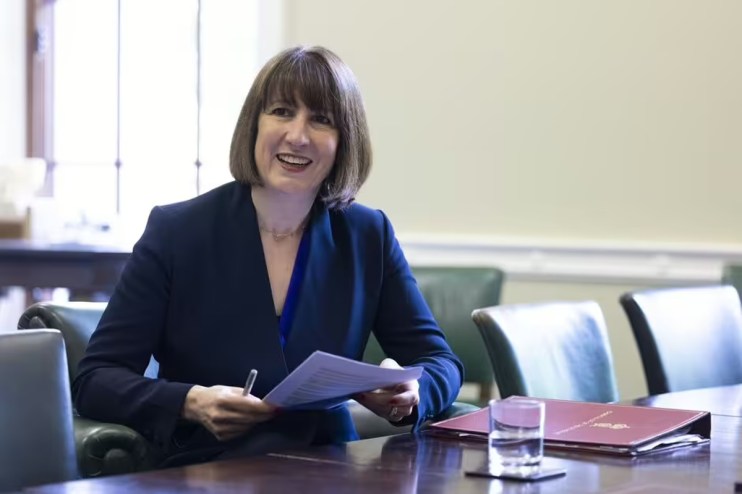Treasury and FCA worried by payments regulator’s fraud refund scheme

The Treasury and City watchdog have raised concerns over a fraud refund scheme from the UK payments regulator that firms have warned could do long-lasting damage to the industry, City A.M. understands.
Under new rules from the Payment Systems Regulator (PSR), banks and fintechs would be forced to fully reimburse victims of authorised push payment (APP) fraud up to a limit of £415,000 from 7 October. The cost would be split between the firms used to send and receive the payment.
Britons lost £459.7m to APP fraud last year, according to banking trade body UK Finance.
Labour City minister Tulip Siddiq is “very worried” that the October deadline may be too tight, while Chancellor Rachel Reeves is also “concerned”, three people familiar with the matter told City A.M.
The industry has warned that hundreds of the roughly 1,500 payment firms may struggle to use the claims management system designed to implement the regime, leaving them at risk of having to manually report cases.
This could make it harder for companies to communicate with the firm on the other side of the claim and reimburse within five days as required. Pay.UK, which is responsible for the system, said it was built and “will be fully operational by the 7 October 2024 deadline for all in-scope payment service providers”.
City A.M. understands Siddiq wrote to an industry group last month saying she shared its concerns that the scheme could be unaffordable for smaller players and hurt investment in the UK’s fintech sector, while not holding tech firms liable for the roughly three-quarters of APP fraud that originates online.
The news underscores recent disagreements between Westminster and financial watchdogs over how to protect consumers while also meeting regulators’ “secondary objective” to promote growth and competitiveness.
One senior industry source said the Conservative government likely regretted giving the PSR “so much leeway” in Section 72 of the Financial Services and Markets Act 2023, under which it developed the rules.
They added that the Treasury is in a “very tough position, given the PSR is technically independent”.
The person said former City minister Bim Afolami told industry bosses he wanted to “fire” the PSR’s then head Chris Hemsley in December after a failed attempt by the Treasury to encourage a lower threshold than £415,000. Afolami said publicly in May that the rules had “significant problems”.
Hemsley abruptly stepped down the following week after nearly five years as managing director, forcing the Financial Conduct Authority (FCA) to parachute in its retail banking boss David Geale to lead the PSR on an interim basis.
The PSR previously told City A.M. that backlash to the rules had “nothing at all to do” with Hemsley’s departure, which was a personal decision. He is due to join regulatory advisory firm Fingleton as a director in November.
A Treasury spokesperson declined to comment on ministers’ concerns, its stance on fraud reimbursement or whether it could intervene to alter the rules.
The PSR declined to comment. A source close to the regulator said the PSR considered a “very large range of views” while consulting with the industry for more than two years and would “be closely monitoring all aspects of the policy from day one”.
Jitters at the FCA
Officials at the FCA have privately voiced similar concerns over the measures, two people familiar with the matter said. Launched in 2015, the PSR is a fully independent subsidiary of the FCA.
“The FCA is also very worried – especially the people who’ve been appointed into PSR oversight in the past few months,” one of the people said.
The FCA appointed Sheldon Mills, its executive director for consumers and competition, to the PSR’s board in June to fill Geale’s non-executive director post.
The person argued the PSR was not delaying its deadline because “it would get killed politically”, with the regulator already facing industry criticism in areas like interchange fees and payments infrastructure.
They speculated that the FCA could eventually look to fold the PSR into its operations, citing the regulator’s choice to appoint one of its own directors as the PSR’s interim boss, instead of an internal candidate.
The FCA declined to comment. A source close to the regulator noted that Geale had been on the PSR’s board since 2020 and was suitably qualified for the interim role.
They added that the FCA made efforts to understand any impact from the rules as part of its role in supervising financial firms.
‘Something will change’
The PSR has stood by its plan and said the rules are designed to “incentivise the entire payments ecosystem to make greater strides in tackling fraud and improving outcomes for victims”.
But some in the sector remain optimistic about a U-turn. “Something will change – maybe a delay, maybe the threshold,” one industry source said.
“I reckon it will get very close to the deadline and fireworks will start to go off,” another added.
Draft plans from Labour leaked before the general election show it calling the PSR’s rules “unfair and unsustainable” and arguing tech companies should be made liable for APP fraud reimbursement, although this is not an official policy position.
City A.M. revealed last week that criminals are making plans to exploit the rules amid concerns they could encourage new types of scams and increase APP fraud losses for UK consumers.